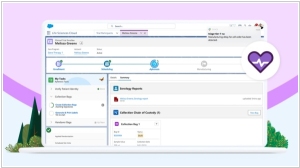DBaaS platforms
Updated: November 11, 2023
DBaaS, which stands for Database as a Service, is a cloud computing model that provides a fully managed database environment to users. With DBaaS, organizations can access and use databases without the need to handle the complex and time-consuming tasks of database management, such as provisioning, configuration, and maintenance. Cloud service providers offer a variety of database engines, like SQL, NoSQL, and NewSQL, allowing users to choose the database technology that best suits their needs. The advantages of DBaaS include scalability, automatic backups, high availability, and reduced operational overhead, enabling organizations to focus more on application development and data analysis, rather than managing underlying database infrastructure. This model is particularly beneficial for small to medium-sized businesses and startups that may not have the expertise or resources to manage databases independently.
See also: Top 10 Public Cloud Platforms
See also: Top 10 Public Cloud Platforms
2023. Oracle brings its database infrastructure to Microsoft Azure
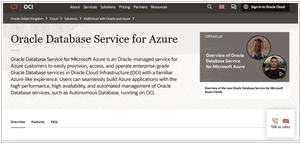
Oracle has revealed a strategic collaboration with Microsoft, introducing an innovative offering named Oracle Database@Azure, denoted by the use of an "at" symbol for emphasis. This partnership involves hosting a segment of Oracle's infrastructure on the Azure cloud, enabling customers to avail themselves of Oracle database services operating on Oracle hardware within Azure data centers. The synergy aims to combine the strengths of Oracle's database product with the acclaimed "security, flexibility, and best-in-class services" offered by Azure, which includes services developed in collaboration with Microsoft's AI partner, OpenAI. Termed as a move to expand options for Oracle clientele transitioning to the cloud, Oracle Database@Azure promises a "fully integrated" experience for deploying, managing, and utilizing Oracle database instances seamlessly within the Azure environment.
2022. EdgeDB raises $15M ahead of the launch of its cloud database service
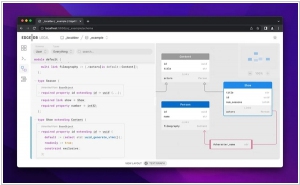
EdgeDB, a startup dedicated to modernizing databases for cutting-edge applications, has announced a successful fundraising round of $15 million. The funding will be utilized to launch the previously announced hosted version of EdgeDB's innovative database solution. While EdgeDB's product retains the fundamental aspects of a relational database, it goes beyond conventional concepts, introducing its own high-level data model, a powerful query language known as EdgeQL, a low-latency network protocol, and a comprehensive set of tools for seamless database management, including installation and backup processes. With this investment, EdgeDB aims to propel the evolution of databases, providing developers with an advanced and efficient solution for their modern application needs.
2020. MariaDB raises $25M more to expand its SkySQL cloud database platform
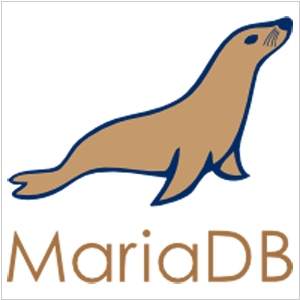
MariaDB Corporation, the company behind MariaDB SkySQL and a prominent player in the open-source cloud database space, has announced a significant funding round of $25 million. With this latest investment, MariaDB Corp. has now raised a total of over $125 million. The growing demand for database-as-a-service (DBaaS) solutions built on cloud infrastructure and open-source technology has contributed to the success of MariaDB's business. Leading enterprises in various industries, including DBS Bank, ServiceNow, Walgreens, Samsung, and more than 75% of Fortune 500 companies, have chosen MariaDB for their database needs, utilizing both private and public cloud environments. This widespread adoption of the MariaDB platform highlights its versatility and reliability. MariaDB's commitment to open-source principles and its cloud-native approach have positioned it as a trusted provider of DBaaS tools. The funding injection will further strengthen MariaDB's ability to meet the evolving demands of enterprise customers and solidify its position as a leading player in the open-source cloud database market.
2020. Yugabyte lands $30M for its open source database
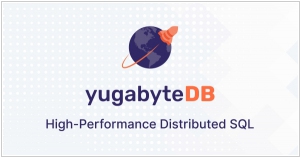
Yugabyte, the creator of the cloud-native YugabyteDB database, has successfully concluded a Series B funding round, securing $30 million. The company has developed a high-performance distributed SQL database, YugabyteDB, specifically designed for transactional workloads in the cloud. Apart from its open-source offering, Yugabyte also provides a private Database as a Service (DBaaS) platform tailored for enterprise customers. This platform is compatible with various environments, including public, private, or hybrid clouds, as well as Kubernetes infrastructure. Additionally, the company offers a fully managed cloud service, currently available on AWS and Google Cloud Platform, with future plans to extend support to Azure.
2016. MongoDB launched database-as-a-service
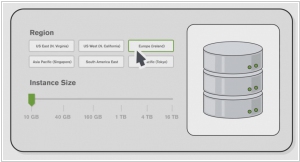
Open source database provider MongoDB has introduced Atlas, a database-as-a-service offering designed to deliver a managed database service to users. This service adopts a pay-as-you-go pricing model and initially supports deployment on Amazon Web Services (AWS), with future plans to extend support to Microsoft Azure and Google Cloud Platform. MongoDB Atlas serves as a complement to the company's enterprise-focused on-premise service, as well as MongoDB Professional, which provides businesses with support and access to Cloud Manager and other tools. Positioned between these two services, Atlas empowers users to swiftly provision MongoDB in the cloud, receive support, and only pay an hourly fee for their usage.
2015. IBM buys database-as-a-service provider Compose
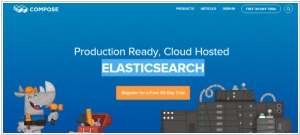
IBM has completed the acquisition of Compose, the startup known as MongoHQ that provides a database-as-a-service solution. According to an IBM spokesperson, Compose will continue its regular operations post-acquisition, and existing users will not experience any disruptions. Compose boasts a user base of approximately 3,600 companies spanning various industries, including retail, IoT, and marketing services. So far, users have created over 100,000 databases using Compose's services. Although Compose initially focused on MongoDB databases, it has expanded its offerings to include Elasticsearch, RethinkDB, Redis, and PostgreSQL. The core concept behind Compose is to enable mobile and web developers to build applications without the need to concern themselves with the complexities of their database backends.

